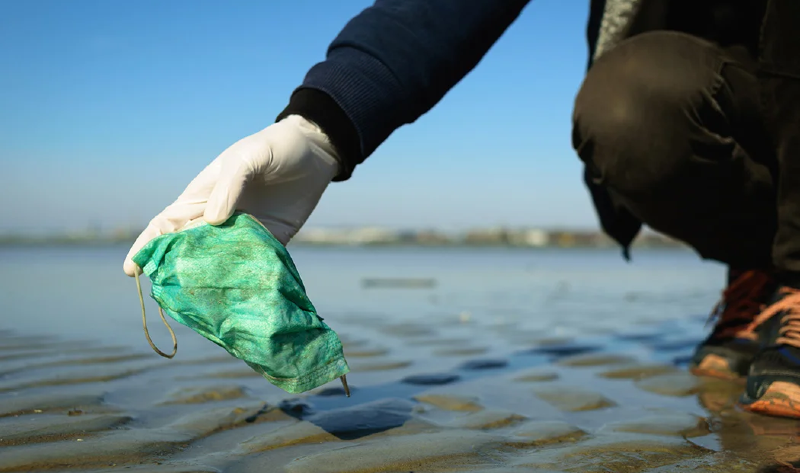Australia has a rich Indigenous history and culture dating back more than 60,000 years. Australian cities like Sydney, Melbourne, and Brisbane are vibrant and cosmopolitan. The country is also known for its laid-back lifestyle, with a strong emphasis on work-life balance, outdoor activities, and spending time with family and friends. The COVID-19 pandemic has brought changes to the way people live. One of the most significant changes is the widespread use of face masks.
Masks are now a common sight in public places, workplaces, and even schools. While these masks have played an essential role in reducing the spread of the virus, they have also brought with them a new environmental concern: the impact of throwaway masks on the environment. This article explores the environmental impact of disposable face masks in Australia.
The Environmental Impact of Disposable Masks
One-use masks are designed to be used once and then discarded. They are made from a combination of synthetic materials, including polypropylene, polyester, and polystyrene. While these materials are effective at filtering out airborne particles, they are not biodegradable. When these masks are discarded in the environment, they can take hundreds of years to break down, contributing to the growing problem of plastic pollution.
Improper Disposal
Furthermore, the improper disposal of masks can have devastating effects on the environment. Many people do not dispose of their masks properly, often discarding them on the ground or in public places. This littering contributes to pollution and poses a health risk to wildlife and humans alike. Discarded masks can collect water and create breeding grounds for mosquitoes, potentially increasing the spread of mosquito-borne diseases.
Greenhouse gas emission
Moreover, the production of one-use masks requires significant amounts of energy and resources. This includes the manufacturing and transportation of raw materials, the production of the masks themselves, and the packaging and distribution of the final product. All of these processes contribute to greenhouse gas emissions, which can have a negative impact on the environment and contribute to climate change.
Impacts soil and water quality
Another concern with these masks is their impact on the quality of soil and water. When masks are discarded in landfill sites, the synthetic materials they are made of can break down over time, releasing harmful chemicals and microplastics into the soil and water. These pollutants can adversely affect the health of wildlife and humans, potentially leading to long-term health problems.
Increase in landfill waste
Furthermore, the widespread use of throwaway masks during the pandemic has led to a surge in demand for single-use plastics, including gloves, face shields, and packaging materials. This increase in demand has put pressure on the already strained waste management system, leading to an increase in landfill waste and potentially contributing to the depletion of natural resources.
The widespread use of single use masks during the pandemic has led to a surge in demand for single-use plastics, including gloves, face shields, and packaging materials. This increase in demand has put pressure on the already strained waste management system, leading to an increase in landfill waste and potentially contributing to the depletion of natural resources.
The environmental impact of disposable face masks in Australia is a growing concern. While masks have played a crucial role in reducing the spread of the virus, their widespread use has also brought new environmental challenges. The accumulation of discarded masks in landfill sites could eventually lead to a shortage of space, and the pollution caused by masks could harm wildlife and contribute to climate change. However, sustainable alternatives such as reusable or biodegradable masks made from natural materials offer a more environmentally friendly solution. Choosing sustainable alternatives can help to reduce the environmental impact of disposable masks and contribute to a cleaner, healthier future for all.

